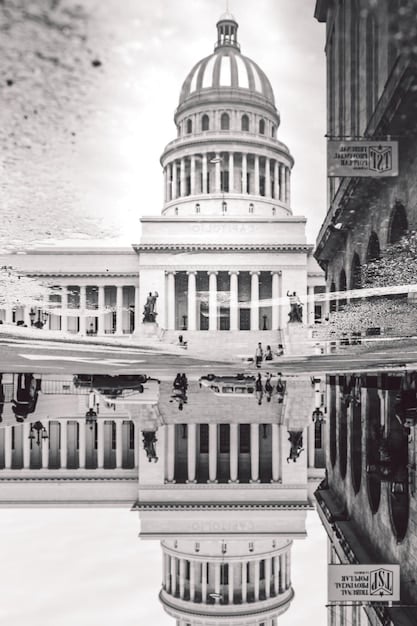Political Climate & American Literature: Interpretation and Criticism

The current political climate in the US significantly influences the interpretation and criticism of American literature by shaping perspectives, highlighting marginalized voices, and prompting re-evaluations of canonical works.
The interpretation and criticism of American literature are not conducted in a vacuum. The ever-shifting political landscape of the United States profoundly impacts how we understand and analyze literary works. This interplay between politics and literature results in a dynamic re-evaluation of classic texts and the emergence of new voices and perspectives.
How the Current Political Climate Shapes Literary Interpretation
The current political climate in the US profoundly influences how we interpret and criticize American literature. Shifting ideologies, social movements, and political events all shape the lens through which we read and understand these texts. This influence is multifaceted, affecting both the selection of texts deemed important and the methodologies used to analyze them.
The Rise of Identity Politics in Literary Analysis
Identity politics has become a central focus in contemporary literary criticism. This approach examines how literature reflects and shapes identities based on race, gender, sexuality, and class.
- Highlighting Marginalized Voices: The current political climate has amplified the demand for diverse representation, leading to increased attention on works by authors from marginalized communities.
- Deconstructing Power Structures: Literary criticism now often focuses on how texts perpetuate or challenge existing power structures.
- Intersectionality: The complex interplay of different identities is also a key consideration, acknowledging that individuals can experience multiple forms of oppression or privilege simultaneously.

Ultimately, the current political climate shapes literary interpretation by demanding a more inclusive and critical approach. By acknowledging the influence of political ideologies and social movements, we can gain a deeper understanding of the complex relationship between literature and society.
Re-evaluating Canonical Works Through a Political Lens
Classic American literary works are not immune to the influence of the current political climate. Re-examining these texts through a contemporary political lens often reveals new meanings and challenges traditional interpretations. This process of re-evaluation can be both enlightening and controversial.
The Case of The Adventures of Huckleberry Finn
Mark Twain’s “The Adventures of Huckleberry Finn” has long been a staple of American literature, yet its use of racial slurs and depiction of slavery has drawn significant criticism. In today’s political climate, many educators and readers are grappling with how to teach and interpret this book responsibly.
- Contextualizing Historical Language: Some argue that the language should be understood within its historical context, while others believe it perpetuates harmful stereotypes.
- Focusing on Twain’s Satire: Others emphasize Twain’s satirical intent, arguing that the novel critiques the hypocrisy of Southern society.
- Debates Over Censorship: The debate over “Huckleberry Finn” raises complex questions about censorship, academic freedom, and the role of literature in shaping cultural attitudes.
The Shifting Perception of The Great Gatsby
F. Scott Fitzgerald’s “The Great Gatsby” has traditionally been viewed as a cautionary tale about the American Dream. However, in the wake of economic inequality and social injustice, contemporary readers may interpret the novel differently.
In conclusion, re-evaluating canonical works through a political lens is crucial for understanding their enduring relevance. By engaging in critical dialogue and acknowledging the complexities of these texts, we can foster a more inclusive and nuanced understanding of American literary history.
The Impact of Social Movements on Literary Themes
Social movements often serve as catalysts for literary expression, inspiring authors to address critical issues and challenge the status quo. The current political climate in the US, marked by movements such as Black Lives Matter and #MeToo, has significantly impacted the themes explored in contemporary literature.
Black Lives Matter and Literary Activism
The Black Lives Matter movement has prompted a surge in literature that explores issues of racial injustice, police brutality, and systemic inequality. Authors are using their platforms to amplify the voices of marginalized communities and challenge dominant narratives.

The impact of social movements on literary themes is undeniable. By addressing critical issues and challenging dominant narratives, literature can play a vital role in shaping public discourse and promoting social change.
Political Polarization and Divisive Literary Criticism
The increasing political polarization in the US has also infiltrated the realm of literary criticism. The interpretation of American literature is becoming increasingly divisive, with critics often aligning themselves with particular political ideologies.
The Echo Chamber Effect in Literary Analysis
The echo chamber effect, where individuals are primarily exposed to information that confirms their existing beliefs, is increasingly prevalent in literary criticism. This can lead to a lack of critical engagement with opposing viewpoints and a reinforcement of partisan narratives.
Political polarization poses a significant challenge to objective literary criticism. By recognizing the potential for bias and engaging in respectful dialogue, we can strive for a more balanced and nuanced understanding of American literature.
The Role of Funding and Institutional Influence
Funding sources and institutional affiliations can also influence the interpretation and criticism of American literature. Universities, foundations, and government agencies often prioritize certain types of research and scholarship, which can shape the direction of literary studies.
The Impact of Neoliberalism on Academic Research
Neoliberal policies, which emphasize market-based solutions and privatization, have had a profound impact on academic research. Universities are increasingly pressured to secure external funding, which can lead to a focus on research that aligns with the interests of donors and corporations.
The influence of funding and institutional affiliations is a complex issue with far-reaching implications for literary studies. By promoting transparency and fostering greater independence, we can safeguard the integrity of academic research and ensure that it serves the public good.
The Future of American Literary Criticism in a Politically Charged Environment
As the US continues to grapple with political division and social change, the future of American literary criticism remains uncertain. However, there are opportunities to promote more inclusive, critical, and nuanced approaches to the study of literature.
Embracing Interdisciplinary Approaches
By embracing interdisciplinary approaches, literary critics can draw on insights from other fields such as history, sociology, and political science to gain a more comprehensive understanding of American literature.
- Promoting Dialogue Across Disciplines: Encouraging collaboration between scholars from different fields can lead to new perspectives and innovative research methodologies.
- Utilizing Digital Humanities Tools: Digital tools and resources can facilitate the analysis of large datasets and identify patterns that might otherwise be missed.
- Engaging with Public Audiences: Literary critics can also play a role in public discussions about literature and culture.
In conclusion, the future of American literary criticism in a politically charged environment hinges on our ability to embrace new approaches, promote critical dialogue, and engage with public audiences. By doing so, we can ensure that literary studies remain relevant and impactful in the years to come.
| Key Point | Brief Description |
|---|---|
| 🗣️ Identity Politics | Shapes analysis, highlighting race, gender, class. |
| 📚 Re-evaluating Classics | Political lens reveals new meanings in old books. |
| ✊ Social Movements | Incite exploration of injustice and inequality. |
| 💰 Funding Impact | Influences priorities in literary research. |
Frequently Asked Questions
▼
Identity politics emphasizes the role of race, gender, sexuality, and class in shaping our understanding of literature. It helps highlight marginalized voices and deconstruct power structures within literary works.
▼
Canonical works are being re-evaluated through a contemporary political lens to reveal new meanings and challenge traditional interpretations, fostering a more inclusive and nuanced understanding of their legacy.
▼
Social movements act as catalysts for literary expression, inspiring authors to address critical social issues, challenge dominant narratives, and amplify the voices of marginalized communities in their works.
▼
Political polarization can lead to divisive literary criticism, with interpretations becoming increasingly aligned with political ideologies, potentially limiting critical engagement with diverse viewpoints.
▼
Funding sources influence the types of research conducted and the focus of literary studies. Transparency and independence are crucial to ensure academic integrity and serve the public good in literary research.
Conclusion
In conclusion, the **current political climate in the US influence the interpretation and criticism of American literature** in profound ways. From shaping the lens through which we view canonical works to inspiring new voices and perspectives, the interplay between politics and literature is a dynamic and ever-evolving process, demanding critical engagement and open dialogue.





